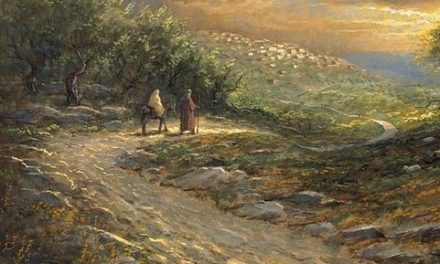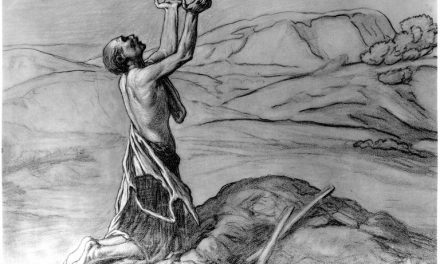Isaiah 55:6—9; Psalm 145; Philippians 1:20—24, 27; Matthew 20:1—16
Is the God of Jesus Christ a God of justice? Justice is certainly a live category among Christians; one hears it everywhere: “social justice,” “racial justice,” “economic justice,” and so on. Yet there are instances in the gospel where Jesus appears to be relativizing justice as an ethical category, if not directly contradicting it. Chief among these instances is the gospel reading for this week: the parable of the workers in the vineyard, taken from Matthew.
A landowner hires workers for his vineyard on five occasions throughout the day, from dawn until five o’clock, and then pays them all the same amount: a normal day’s wage. The workers hired later in the day receive their wage first, so that the ones hired at dawn could clearly see what everyone before them received. And so they quite understandably complain about this compensation policy. It seems like a fairly straightforward case of injustice, does it not? If justice is fundamentally a matter of “giving to each what is their due,” surely the landowner commits an act of injustice by giving to each of these workers an equal wage regardless of how much they worked!
Yet at the end of the parable Jesus has the landowner characterize his own act as one of generosity. “‘My friend, I am not cheating you,’” he has him say. “’Did you not agree with me for the usual daily wage? Take what is yours and go. What if I wish to give this last one the same as you? … Are you envious because I am generous?’”
Even if the landowner is giving the workers hired at dawn the wage which they had originally agreed upon, and this wage was “normal” relative to the standards of that time and place, is it not still unjust? Does injustice occur only when one received less than is their due? Isn’t it also unjust to give someone more than is their due, particularly if this gift is out of proportion with what is given to others in like circumstances? Is this not at least an instance of bias or discrimination in favor of the workers hired later? Certainly it would not pass full muster with the Equal Employment Opportunity Commission, would it?
If as Jesus says, this is what the kingdom of heaven is like, then must we infer that the kingdom of heaven is unjust, or at least a kingdom in which justice is not an ultimate value? I think the answer is inevitably “yes:” Jesus is saying here that in the kingdom of heaven, “fairness” does not reign supreme. What are we to make of this idea? If we cannot expect basic reciprocity from God, what can we expect? Is God an arbitrary tyrant, bestowing upon us whatever recompense he feels like without regard to any discernable standard or principle? Perhaps the real aim of the landowner’s action is to convey to the various workers his own power over them: “am I not free to do as I wish with my own money?” he tauntingly asks, as if in essence to say: “look, I can pay you whatever I want, because I am the one with the money.”
We should dwell on this potentially darker interpretation of the parable in order to fully recognize and break free from the default ethical paradigm of the modern mind: namely that justice finds its fulfillment in equality. More specifically, we presume that all morality comes to its culmination in the sort of equality that can be measured and assessed. In visualizing the “kingdom of heaven” in our own time and place we often only go so far as to imagine proportionate distribution of resources and procedural uniformity with respect to civic participation. What Jesus has in mind is much deeper, however, and infinitely richer. What he has in mind is a kingdom ruled by the logic of love, a logic that does not always cohere with mere reciprocity.
As the Pope put it in the encyclical Caritas in veritate, “Charity goes beyond justice, because to love is to give, to offer what is ‘mine’ to the other; but it never lacks justice, which prompts us to give the other what is ‘his’, what is due to him by reason of his being or his acting.” Justice is not therefore abrogated by love, since love requires justice as a “prerequisite.” Yet it is nevertheless true that justice is not ultimate; it is meant to be perfected and fulfilled through love. As Caritas in veritate goes on to say, “the earthly city is promoted not merely by relationships of rights and duties, but to an even greater and more fundamental extent by relationships of gratuitousness, mercy and communion” (§6).
We must not overlook a detail at the start of this parable which is too often overlooked: Jesus does not say that the kingdom of heaven is like the landowner’s actions, the landowner’s compensation policy or even the landowner’s generosity; he says the kingdom of heaven is like this sort of landowner—a landowner who actively seeks those who would assist him in the cultivation of his vineyard, relentlessly walking through the streets to find those in need and calling them into his service. And his display of blatant inequality at the end of the day represents another, and far more important call: the call to go beyond relationships of mere reciprocity and contractual exchange to relationships ruled by the logic of love. For this is what the kingdom of heaven is: the endless interchange of self-forgetting love in which every superficial discrepancy of time and place is swallowed up by the generosity of the divine gift.




